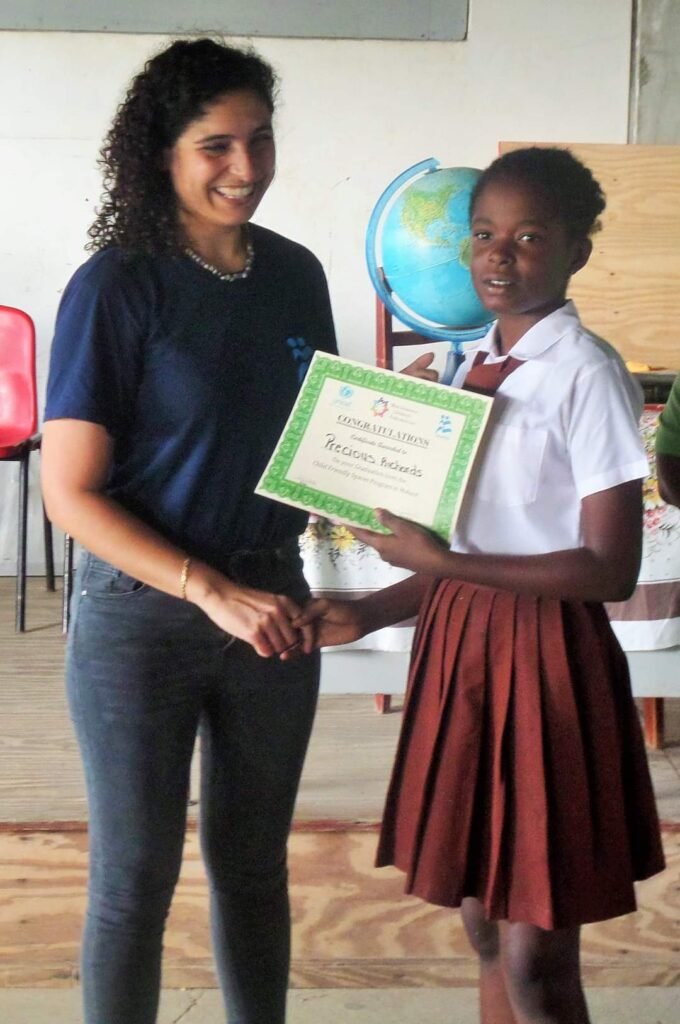ORGANIZATIONAL OVERVIEW
Our programming approach is directed to changing the socio-economic landscape for deprived, excluded, and vulnerable children and families in Dominica.
The West Dominica Children’s Federation (West Fed) is a non-government organization working on behalf of children in 50 communities on the west coast of the Commonwealth of Dominica. Our aim is to build peaceful communities where children and youth can live in a clean, safe and drug free community. We serve children and families by implementing programs that target the following five priority issues: Alcohol & Drugs, Sexual Abuse, Unemployment, Climate Change Adaptation and Empowerment of Women and Girls.

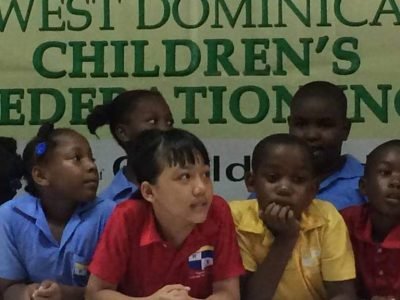

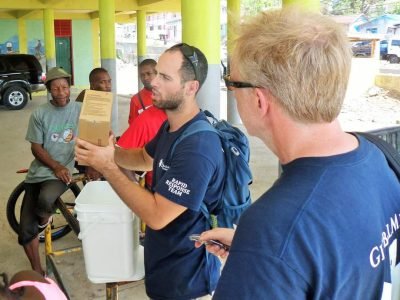
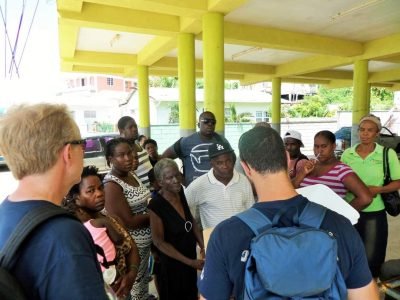
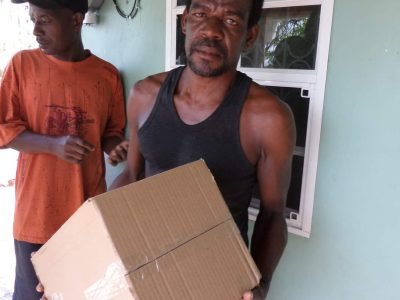
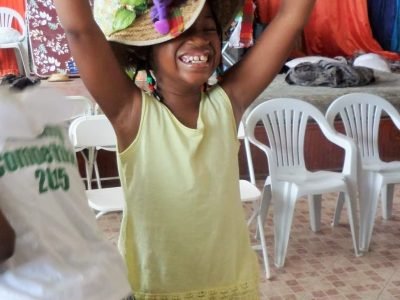
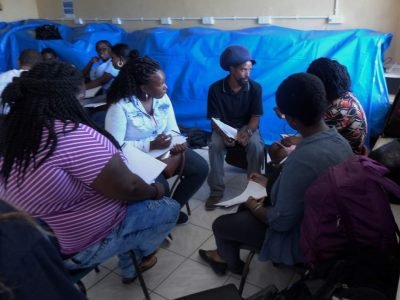

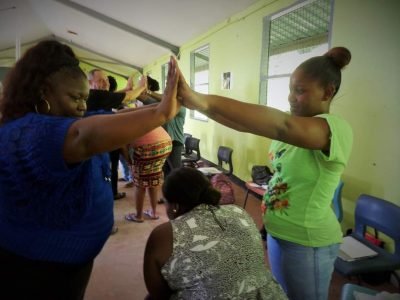


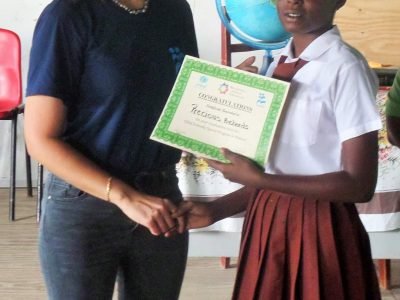
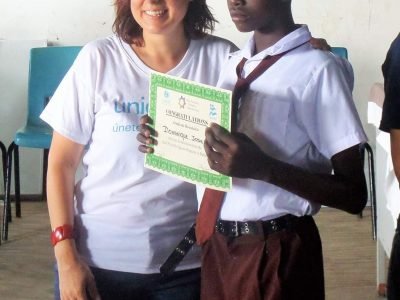
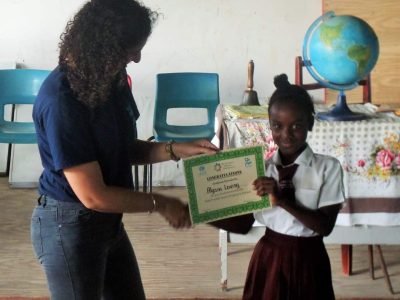
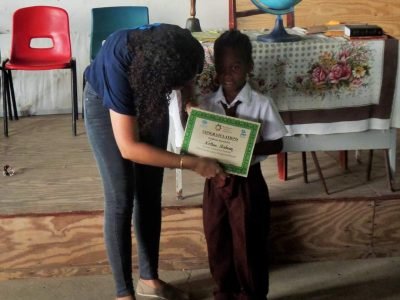

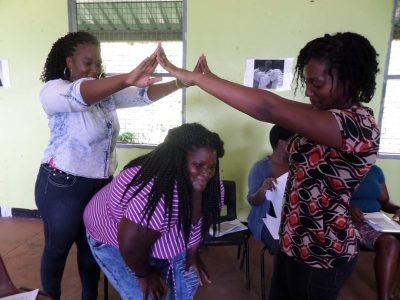
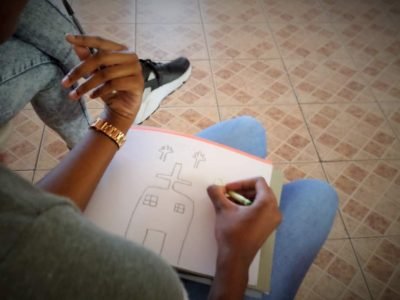
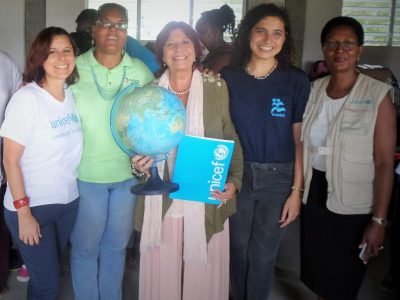
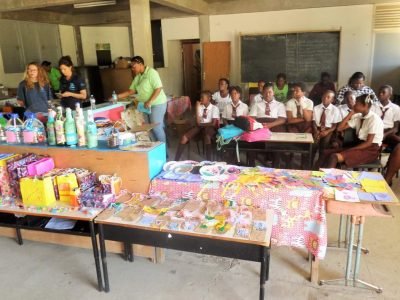
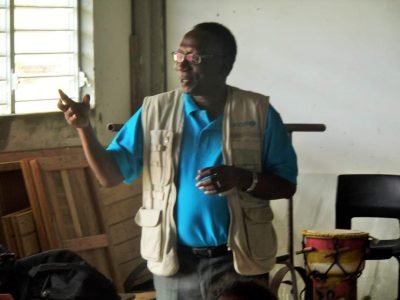

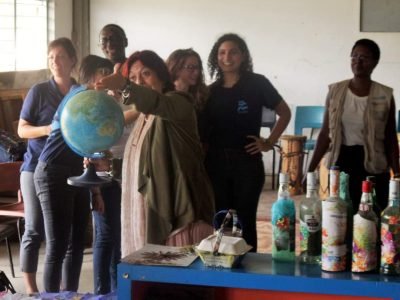
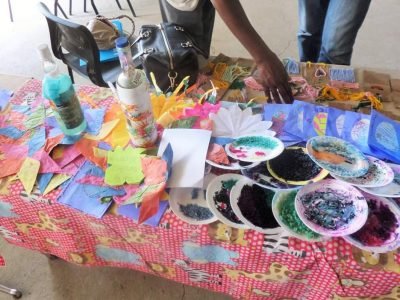
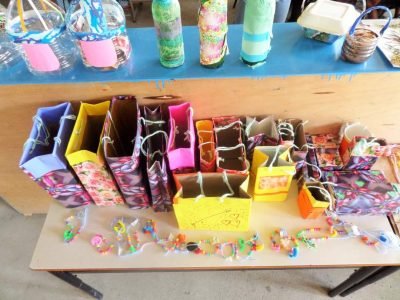

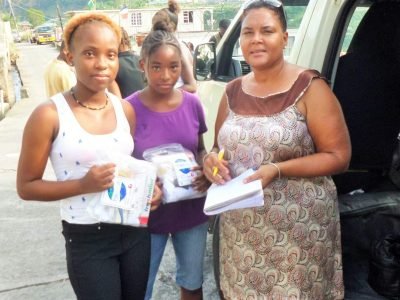
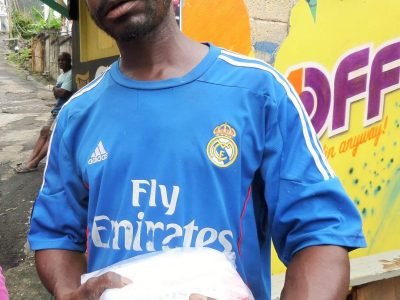
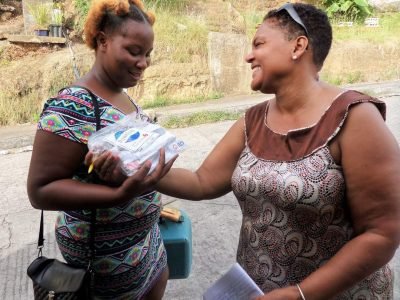
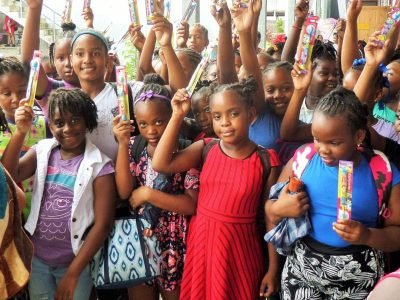
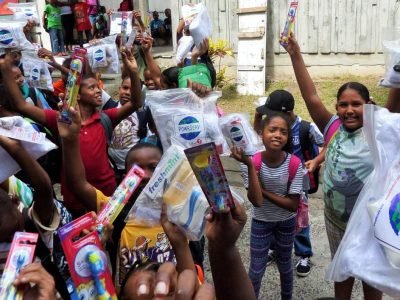
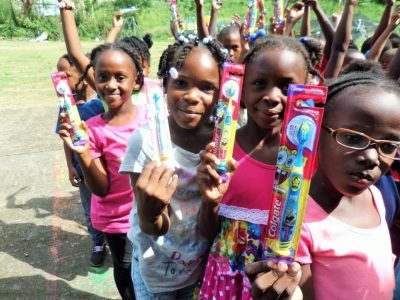
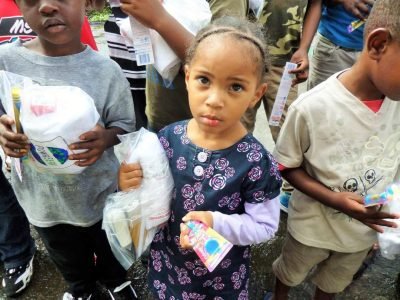
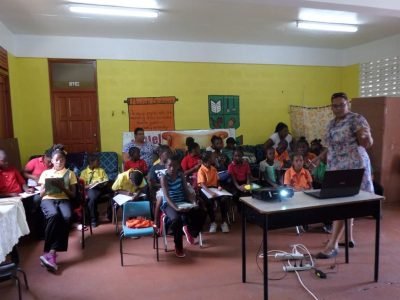
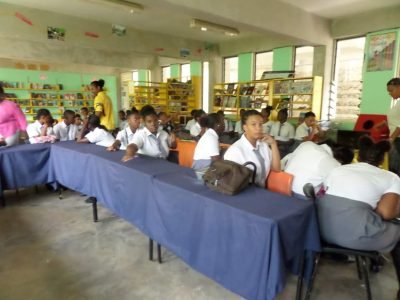
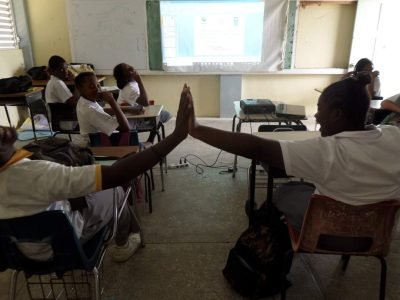
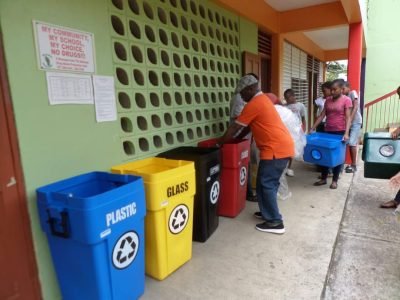
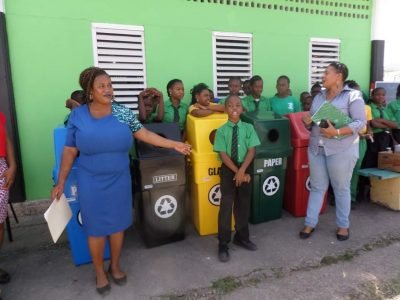
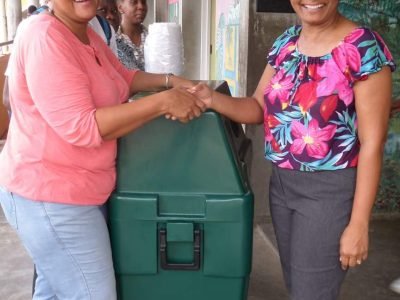

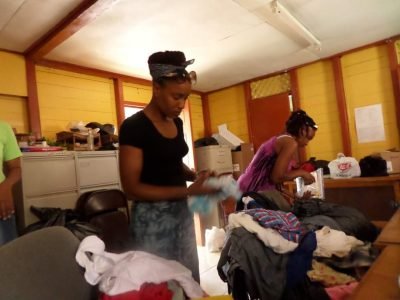
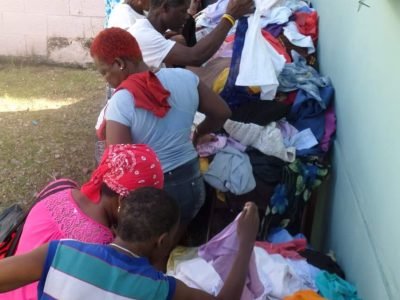
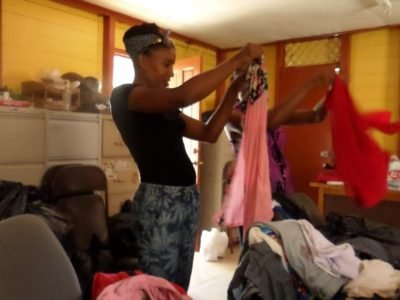
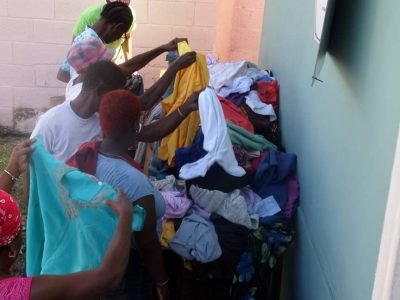

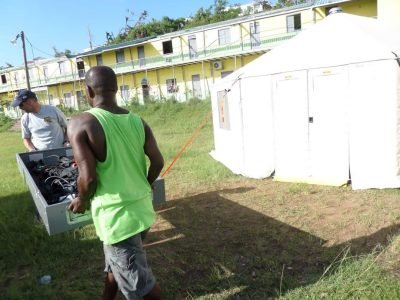
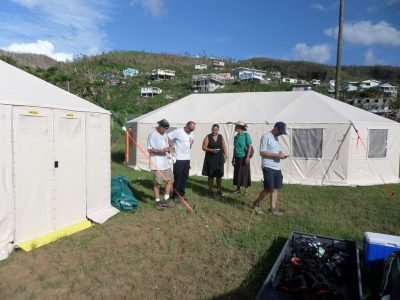
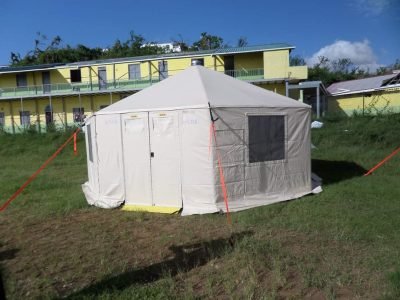
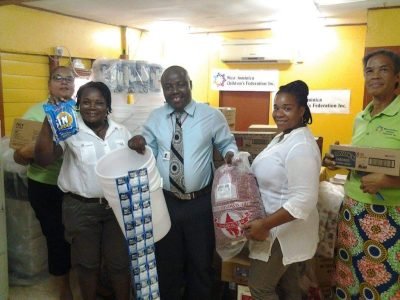
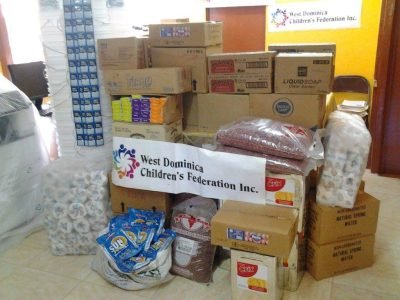
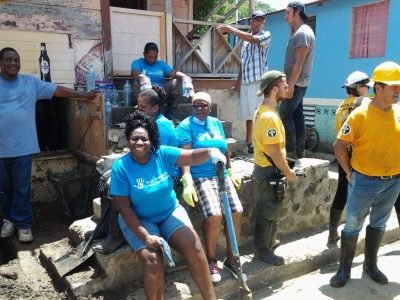
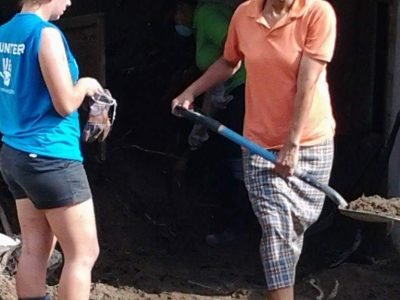
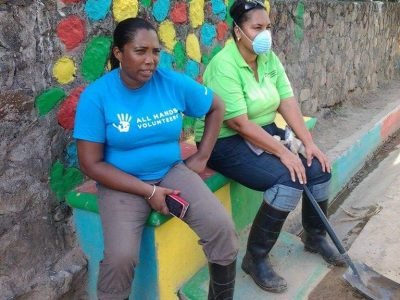
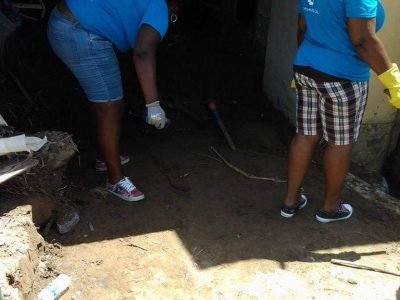

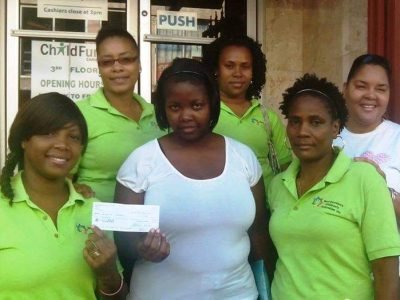
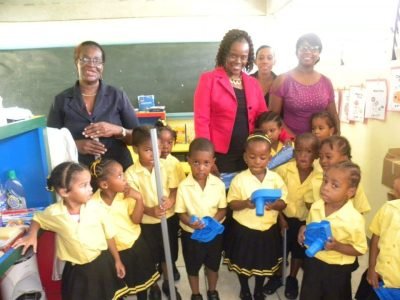
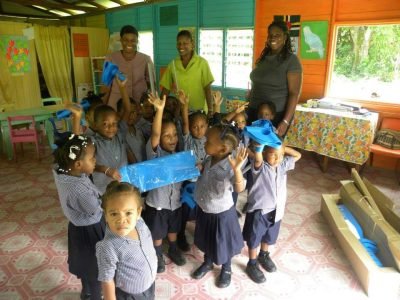


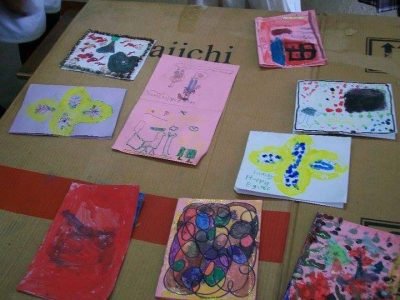
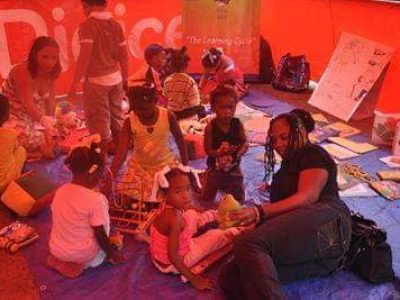





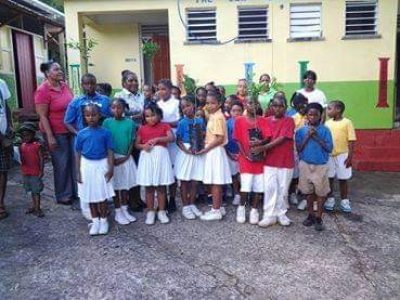
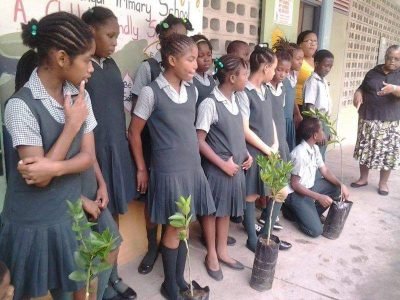
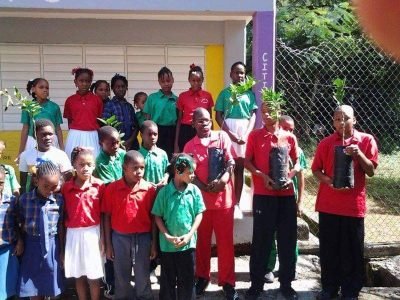

west dominica childrens federation
VISION
Create an economically vibrant community by building partnerships across all sectors of the community for the good of the children.
MISSION
Children and youth will reside in a caring and peaceful environment that promotes effective partnerships to ensure that they live in communities that are passionate about community empowerment.
VALUES
Inclusivity
Respect
Freedom of Speech
Accountability & Transparency
Confidentiality
GOALS
Increase child and youth access to nurturing and stimulating experiences conductive to healthy growth and development.
Ensure child and youth have access to and complete basic good quality education
Enable meaningful youth participation in policies and programs that affect and can benefit their lives
OBJECTIVES
Integrate programs, sponsorship and finance in processes and activities for high productivity.
Ensure highest level of meaningful participation and leadership of children and youth
Implement and adhere to policies and guidelines for quality operations of the Federation and quality assurance of financial agreements and performance management.
Conduct effective monitoring and evaluation of projects through reviews, research, surveys, beneficiary tools, etc
Increase high visibility of the organization and work with government and private sector to increase financial and technical resources to ensure growth and sustainability.
COMMUNITIES SERVED BY THE WEST FEDERATION
50 communities in the Commonwealth of Dominica.
From the village of Penville in the northeast through the entire west coast to the village of Petite Savanne in the Southeast.
Roseau, the capital city, and Portsmouth are two of the largest settlements on the island.
All communities served by the West Federation can be accessed by roads, and public
transportation is available.
DEMOGRAPHIC INFORMATION
Population covered by the West Federation is approximately 47,000
Women make up approximately half of the population
40 percent of the population is under the age of 25 years
High prevalence of female-headed household (40%)
High emigration rates affect families
POVERTY RATES
3.1percent of the population at the indigent level (extreme poverty)
Average level of poverty for the country was 28.8 percent.
11 percent are under the vulnerability line and are at risk of falling into poverty.
Three of the parishes (St. Joseph (47.2%); St Patrick (42.7%); St. Andrew (38.1%) covered by the West Federation have high than average poverty rates.
74.1%of the poor are employed but earn too little to keep them above the poverty line.
Many parents, particularly single parents are therefore forced to work at more than one job to make ends meet often having to leave children to fend for themselves.
Children and youth living in poverty account for more than half (52.1%) of the poor population.
Youth unemployment account for more than a third (36 %) of the unemployed in the country.
– COMMUNITY REFLECTIONS –
DEVELOPMENT FRAMEWORK
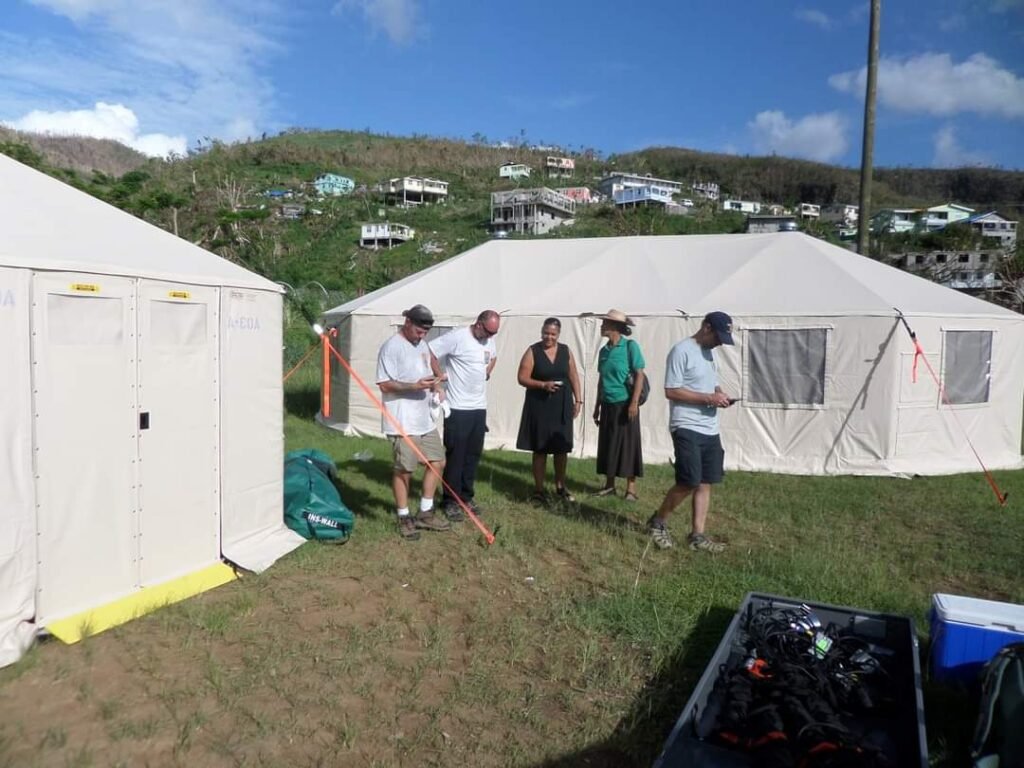
Children’s experiences of poverty in the West Federation were analyzed along the three different but interrelated dimensions of the DEV framework: deprivation; exclusion; vulnerability. These three different but closely tied dimensions not only affect their choices and relationships but have a major influence on future life tendencies toward intergenerational poverty. The findings are summarized below
DEPRIVATION
Deprivation for many poor children and youth means:
Not having enough to eat.
Living in overcrowded and unsafe environments.
Having limited access to adequate hygiene and sanitation facilities.
Unable to afford sufficient basic needs.
Being raised in single parent households with limited economic support.
Being deprived of a stimulating family environment which promotes early learning and self-esteem.
Limited access to quality early childhood stimulation and development programs.
Restricted access to formal education due to costs of uniforms, books, and transportation.
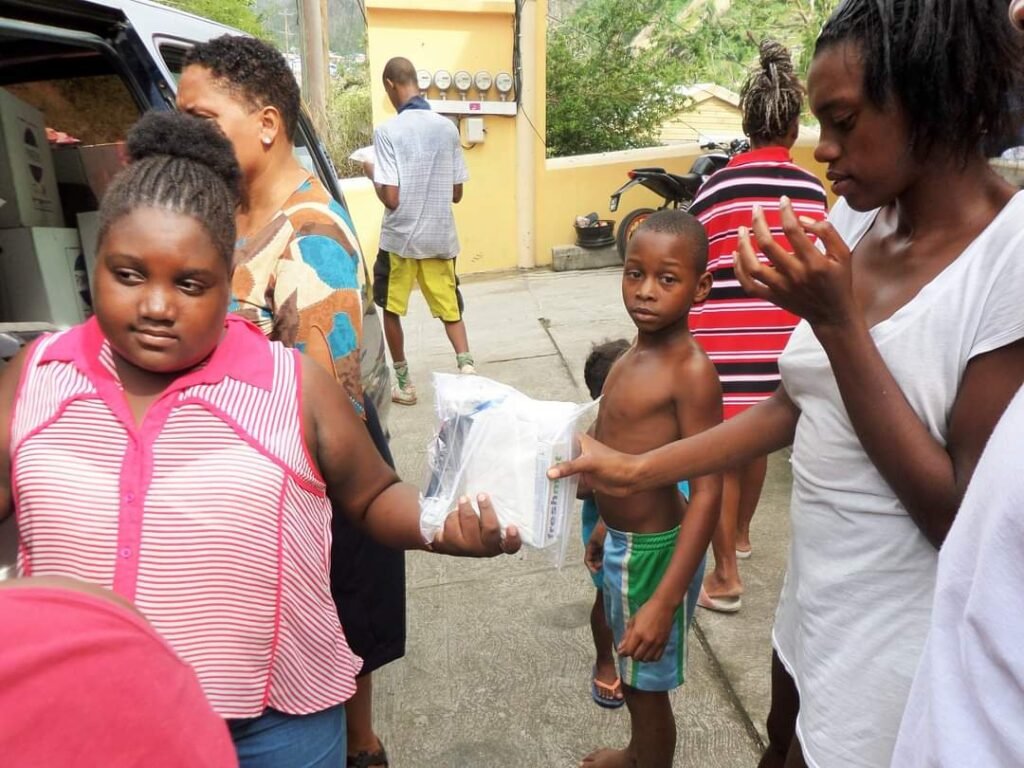
EXCLUSION
Poor children and youth experience exclusion in the home, school, and community environments. Experience exclusion means:
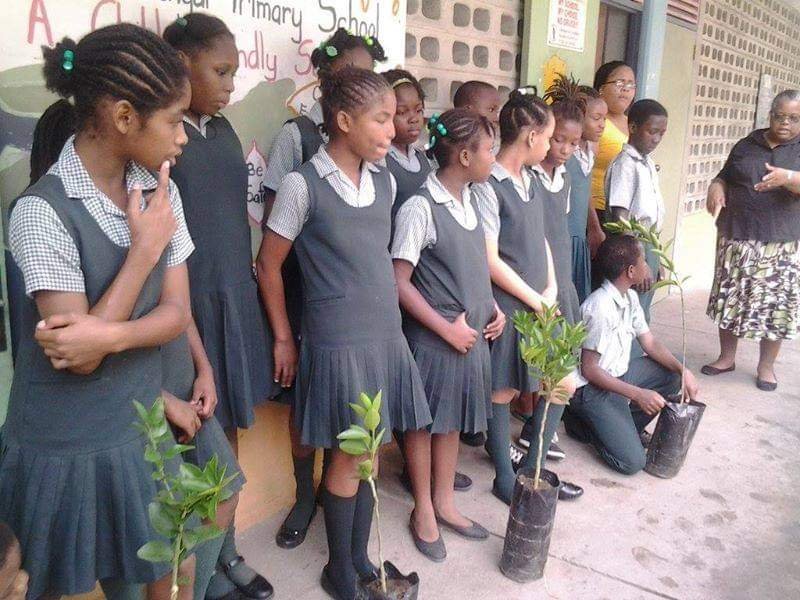
Experiencing feelings of rejection, lack of self-worth, and low self-esteem.
Not participating in meaningful programs that can affect your life and community.
Having weak family cohesion and conflict in the home.
Having poor relationship with parents and an absence of fathers.
Living with a perception that teachers are unsupportive and not respectful of their views.
Being discriminated against, ridiculed or ignored by other children because of economic status.
Experiencing slow academic progress due to inadequate guidance.
Not being able to participate in community activities and programs in because of affordability.
Being stereotyped as lazy and unmannerly.
Living with the stigma that links poor people with HIV/AIDS.
VULNERABILITY
The vulnerability of children and youth stem from:
Homeandcommunities that are not nurturing, protective or supportive.
Poor parenting skills and the absence of parental guidance.
Exposure to violence, physical, sexual and emotional abuse, alcohol and drug abuse.
Exposed to corporal and other forms of abusive punishment in homes and schools.
Exposure to high tolerance levels, which lead to violent behaviour or submission to it as a victim.
Early onset of sexual activity, in many cases with histories of sexual abuse.
Predisposition to early pregnancy, HIV/AIDS, and other sexually transmitted infections.
Prevailing attitudes and values that do not support child participation in decision-making.
An environment not conducive to the development of personal values and skills and the ability to avoid risky behaviour.
Participation in gang related activities stemming from a perceived need for protection, recognition and a sense of belonging.
High risk of substance abuse and attraction to possible earnings from illegal activities such as drug dealing and prostitution to help relieve poverty and increase household income.
Attraction to potential earnings from illegal activities such as drug dealing and prostitution to help relieve poverty and increase household income.

KEY PRIORITIES & ROOT CAUSES
West Federation programs aim to address the following priority issues: Alcohol and drug abuse, violence, sexual abuse, unemployment, and teenage pregnancy.
The key underlying causes are
Slow rate of economic development & job creation.
Lack of provision of basic needs.
Poor living conditions.
Cultural or social norms about social status of children & women.
High tolerance of violence and alcohol use.
Lack of child/youth empowerment.
Lack of rights awareness by children and adults.
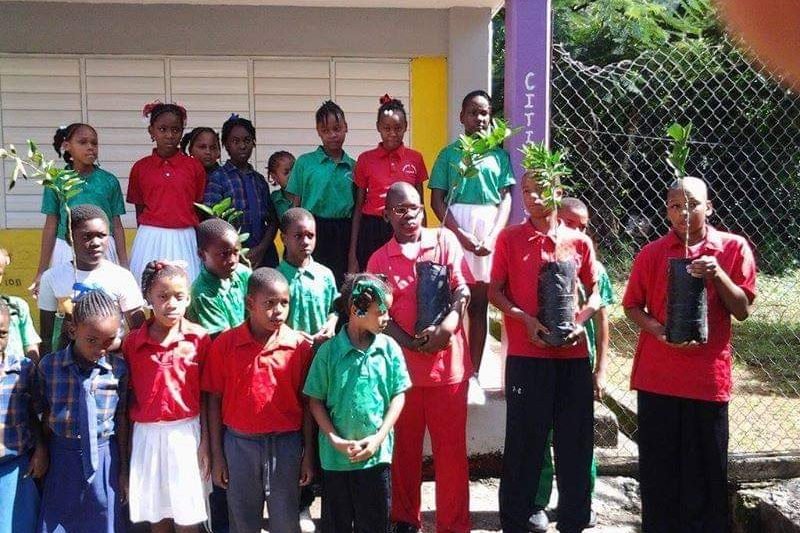
Poor quality & relevance of education including limited access to second chance education and skills. Weaknesses of social support services
PAST PROGRAMS & PROJECTS
The work of the West Dominica Children’s Federation has at its core five prioritized issues towards which programs and spending within the federation is focused. There are: Alcohol & Drugs, Sexual Abuse, Unemployment, Teenage Pregnancy, and Violence.
Our programs target three life stages: : 0-5, 6-14 and 15-24 and aim to build communities that are more
peaceful with a harmonious interaction of families who value quality health and education and thrive on sustainable livelihoods.
TINY HANDS, GREAT MINDS FOR CHILDREN
(0-5YEARS)
Our goal is to increase the access of infants and young children to nurturing and stimulating experience that are conductive to health growth and development.
We are well on our way to achieving this by the training that we have given to 40 preschool teachers in targeted schools and assisting with the certification and implementation of High Scope Methodologies.
We are assisting with the Upgrade of facilities of at least 6 pre-schools and we have seen a percentage increase in children 3-5 attending ECD Centers.
There are two main projects within this umbrella program:
EARLY CHILDHOOD STIMULATION PROGRAMME
The quality of interaction between infants and caregivers is crucially to child development. Lack of accessibility to quality services for the 0-3 year age group in rural communities reduces chances of developing to their full potential.
The program targets children from birth to three years of age who do not have access to formal early childhood education.
● Increase awareness of parents and other community members of the short and long term benefits of optimal early childhood development.
● Enable child care practitioners and health care providers to practice early stimulation
methodologies.
● Increase knowledge and skills of mothers and fathers in conducting early child stimulation in their
homes.
● Assist participating families with the development of a cost effective early stimulation program model suited to national needs
EARLY CHILDHOOD DEVELOPMENT (ECD) QUALITY ENHANCEMENT PROJECT
Access to high quality ECD programs in pre-school years has a strong positive impact on children’s cognitive and psychosocial development as well as on survival and physical growth. Ensuring access to basic education of good quality also contributes significantly to breaking the cycles of deprivation,
vulnerability and exclusion.
Considerable efforts have been made nationally to improve the quality of
preschool education through the establishment of operational standards and upgrading of physical facilities. However, there is urgent need to direct attention to the development of a culturally and developmentally appropriate curriculum to guide the planning of learning activities in the classroom to ensure positive educational outcomes including school readiness.
● Strengthen capacity of teachers in targeted pre-schools for implementing High Scope learning and teaching methodologies
● Provide appropriate tools and materials and upgrade facilities in targeted pre-schools to meet national certification standards
● Achieve 90% preschool access by targeted children aged 3-5 years in rural and urban
impoverished areas through financial support
LET CHILDREN BE CHILDREN (6 TO 14)
Let Children be Children concentrates on the development of educated and confident children. By providing support to the development of child-friendly schools, our goal is to ensure that deprived, excluded and vulnerable children between the ages of 6 and 14 have access to and complete a high-quality basic education
CHILD FRIENDLY SCHOOLS (CFS)
Access to and completion of a high-quality basic education honours a child’s right to realize their full potential with a solid educational foundation. While substantial progress has been made towards achieving universal primary and secondary education nationally, issues of quality and relevance remain and affect school completion rates and levels of educational performance.
The Child-Friendly Schools (CFS) approach developed by UNICEF is aimed at addressing the quality of education, taking into account improvements in learning competences of all children, including those currently excluded or marginalized. Emphasis is placed on the delivery of educational services in a rights-based environment that is inclusive not only for children, but also their families and communities.

Objectives
● Strengthen the capacity of primary and secondary school principals and teachers for implementing
and evaluating child-friendly quality methodologies and standards.
● Strengthen the capacity of primary and secondary school principals and teachers for acquisition of
behavioural life skills through the effective implementation of the Health & Family Life Education curriculum.
● Develop the capacity of students to enable them to meaningfully participate in school governance.
● Increase the capacity of school administrators to identify, register or support excluded and
marginalized students
Successes and highlights
Our School Feeding Program contributes to the positive and productive children, youth and adults that we hope to see with the reduction in the incidences of violence and possibly the elimination of child sexual abuse.
● Our CFS approach aims to keep children in schools by by taking a number of positive actions that include increasing the number of schools with administrators and teachers trained in CFS methodologies and using improved behavior management methods.
● We also work to equip schools with effective models of school governance with active student participation in most high schools enacting a constitution for the relationship between the students and principals.
● We also do alot of information sharing on child specific issues, Child rights as and extension of Human Rights for which we have done an educational drives to numerous schools across the
communities that we serve from north to south.
● We also concentrate on Climate smart agriculture and Disaster Risk Reduction with a child safety component teaching children how to keep themselves safe before during and after a disaster
YOUTH LEADS (15 TO 24)
Let Children be Children concentrates on the development of educated and confident children. By providing support to the development of child-friendly schools, our goal is to ensure that deprived, excluded and vulnerable children between the ages of 6 and 14 have access to and complete a high-quality basic educatio Youth Leads enables youth to gain the necessary skills to participate meaningfully in, and benefit from policies and programs that affect their lives. There are two projects under this umbrella program which address the core outcome of skilled and involved youth.
ALL WE NEED IS LOVE
By protecting the rights of youth and developing the leadership skills and values, they can break intergenerational patterns of poverty, abuse, exploitation and violence. Because of a current lack of appreciation and recognition of the resource they represent in families and communities, the need is urgent to provide opportunities for youth to develop capacities which will enable them to lead positive
change in their lives and to participate constructively in their communities.
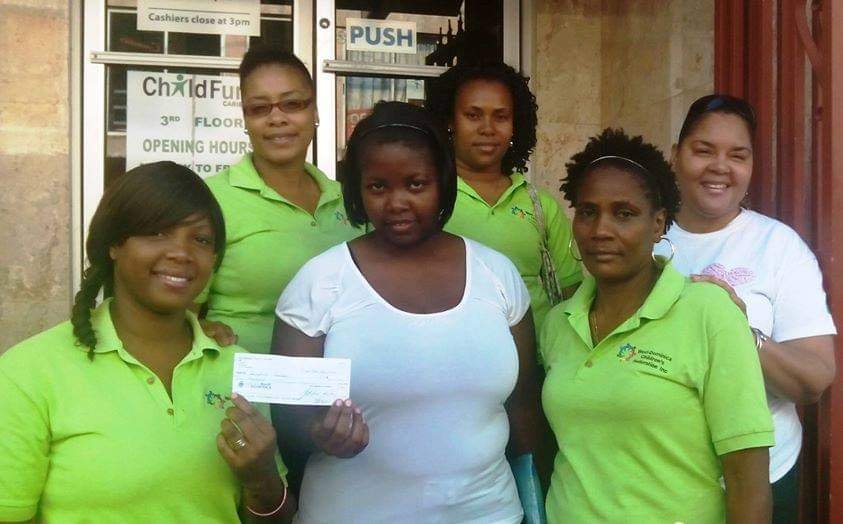
Objectives
● Increase awareness of children and youth, adults about duties and responsibilities regarding the
fulfilment and protection of human rights.
● Strengthen leadership capacity of youth organizations for forming partnerships to address
prioritized issues in communities.
● Create safe, child friendly spaces within targeted communities, particularly for those affected by violence.
● Upgrade knowledge and skills of children, youth and community members for completing reporting protocols (i.e. child abuse reporting protocols, domestic violence, general offences).
● Organize forums for consultations and networking among youth, community leaders, and policy makers
Successes and highlights
Our School Feeding Program contributes to the positive and productive children, youth and adults that we hope to see with the reduction in the incidences of violence and possibly the elimination of child sexual abuse.
● Our CFS approach aims to keep children in schools by by taking a number of positive actions that include increasing the number of schools with administrators and teachers trained in CFS methodologies and using improved behavior management methods.
● We also work to equip schools with effective models of school governance with active student participation in most high schools enacting a constitution for the relationship between the students and principals.
● We also do alot of information sharing on child specific issues, Child rights as and extension of Human Rights for which we have done an educational drives to numerous schools across the
communities that we serve from north to south.
● We also concentrate on Climate smart agriculture and Disaster Risk Reduction with a child safety component teaching children how to keep themselves safe before during and after a disaster
GATEWAY TO POSITIVE LIVING
By offering the youth and parents of children who are DEV opportunities for second chance learning and
skill development as well as the promotion of entrepreneurship and business development, families learn transferable skills and how to establish sustainable livelihoods.

Objectives
● Build capacity and increase opportunities for leadership skills development and youth agency.
● Strengthen capacity of youth and adults for engaging in livelihood and business development.
● Increase opportunities for promoting youth and parents’creativity,entrepreneurship and employment.
● Increase teen parents’ access to second chance educational opportunities.
● Increase opportunities for youth to develop life skills and other psychosocial competencies to
facilitate the adoption of positive values,attitudes,and lifestyles.
Successes and highlights
● To ensure that out of school youth can succeed in life with skills that allow them to earn an income,we have partnered with the Youth Division of Dominica and conducted leadership and capacity building skills training sessions as well as other training sessions in construction,carpentry, plumbing and such skills.
● We also have collaborated with National Development Foundation of Dominica to teach about marketing skills,account and customer service skills as well as finance management for small business owners.
● Training has also taken place in leather craft making of belts,keyrings plaques and earrings, massage therapy, cosmetology and office management.
● Wide spread income generating activities and youth small holding farming for young adults and families across the areas that we serve
STAKEHOLDERS
BOARD OF DIRECTORS
The West Dominica Children’s Federation’s board of directors is governed by the organization’s constitution. The board consists of the following 11 member s who are responsible for the overall leadership and guidance of the organization and ensures the overall integrity of the organization is met:

Arthur Hilton
President

Mildred Nicholas
Vice President

Renalda Joseph
Secretary

Millutine Hyacinth
Member

Viviane Toussaint
Assistant Secretary

Ursula Peter
Treasurer

Althia Blanc
Member

Yana Jno. Baptiste Henderson
Youth Representative

Millutine Hyacinth
Youth Representative

Celia George
Member
VOLUNTEERS
COMMUNITY MOBILIZATION VOLUNTEERS
We have developed a volunteer program supporting the team of community mobilizers to work more effectively.
Community mobilization volunteers undergo training and are call upon to assist with special projects on an as needed basis.
INTERNSHIP PROGRAMME
In partnership with ChildFund, Social Work interns from the James Madison University in the United State of America gain practical work experience and training opportunities by supporting our programs.
PRIMARY ENHANCEMENT PROGRAMME VOLUNTEERS
Short-term community volunteers provide valuable assistance with Primary Enhancement Programs such
as children’s summer school programs.
INTERNATIONAL VOLUNTEERS
Cuso International, professional skilled volunteers from Canada, provides a variety of technical expertise
and capacity building support to the management staff of the West Federation.
FUNDERS & SUPPORTERS
Through a long-standing partnership with ChildFund International, the West Dominica Children’s Federation has impacted the lives 2,264 enrolled children within the ChildFund sponsorship program. ChildFund International has been the West Federation major funder as we continue to work together to make a positive contribution to the lives of children and families in Dominica.
PARTNERSHIPS
The West Dominica Child Federation promotes and fosters strategic partnerships and networks with
technical persons and organizations where appropriate in order to ensure high-end impact. Major partners
in Dominica include:
• Ministry of Education
• Ministry of Social Services
• Ministry of Youth, Culture, and Sports
• Cuso International
• Peace Corps
• AGanar
• Junior Achievers / Dominica Youth Business Trust
• Dove Club Dominica–World Pediatric Project
• Care of the Elderly
OPPORTUNITIES FOR DONORS TO BE A PART OF THE VISION
The West Dominica Child Federation is continuously looking for opportunities to partner with businesses, institutions, and individuals who are passionate and connect to the organization’s vision. West Fed is committed to building long lasting relationships with local and international communities to ensure the needs of the children are being met.

CHARITABLE DONATIONS
Your gift can change the lives of children and their families. No matter the size, your contribution will mean a brighter future for children, their families, and their communities.
IN-KIND CONTRIBUTION
In-kind contributions from donors are also welcome and much appreciated. In-kind donations can be
dropped off directly at our office by appointment or you can call to organize a pick up. Items we accept
are:
• Books(good condition)
• Stationary items
• Gently used clothes / shoes
• Computers equipment / gadgets (few years old)
• Household Items(Mattresses/ wardrobes families can use)
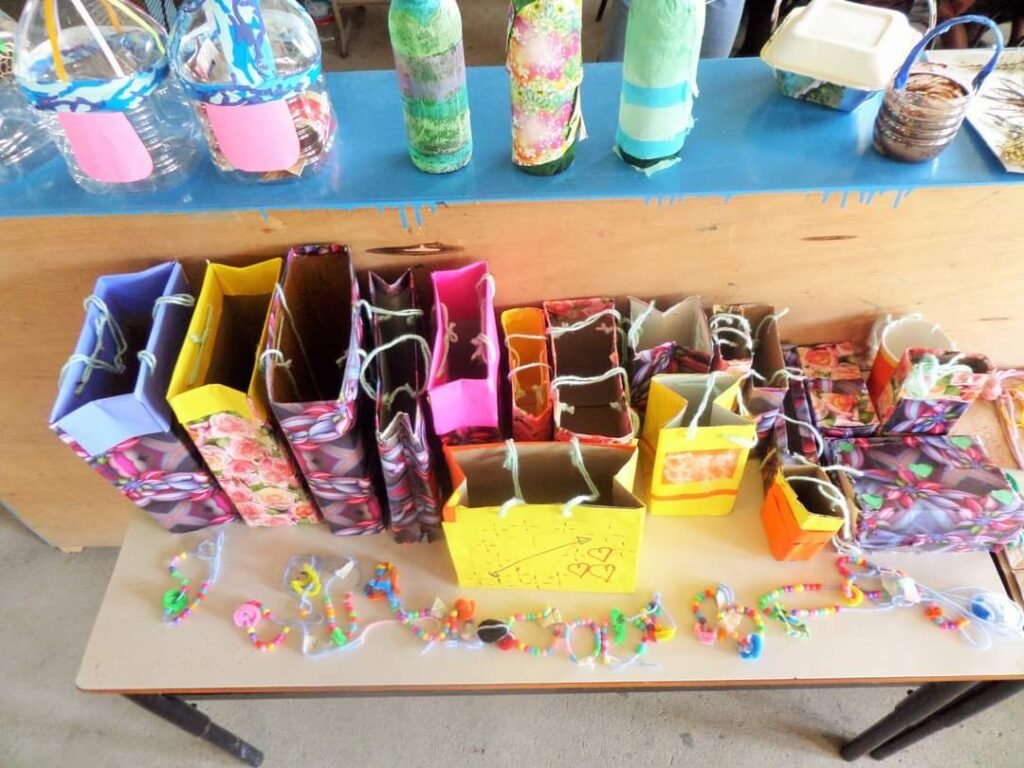
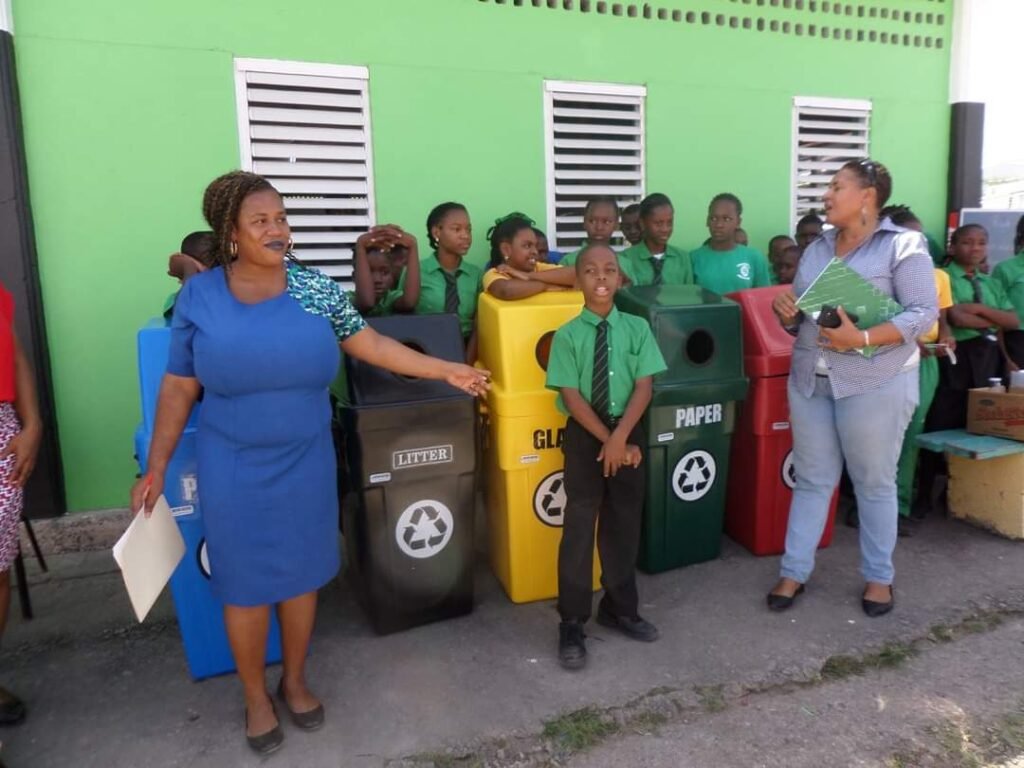
BECOME A VOLUNTEER
The West Dominica Children’s Federation welcomes volunteers who are interested in donating their time and efforts to meet the needs of children in the programme communities. Volunteering your time with the West Federation will provide you the opportunity to make new friends, develop your skills, mentor and inspire someone, and is a valuable contribution to your community and your country. We actively recruit local volunteers with the following skills:
• Administrative
• Writing
• Planning and Program Development Skills
• Facilitation skills
• Teaching and Early Childhood Development skills
• Social work experience and expertise
• Volunteering with children and youth
• Volunteer under the Roving Care Givers and All We Need is Love program areas
BECOME A FACILITATOR
The West Federation welcomes applications from field experts to develop and facilitate training sessions for children and parents or youth between the ages of 15-24, especially in the areas of entrepreneurship and life skills development.
